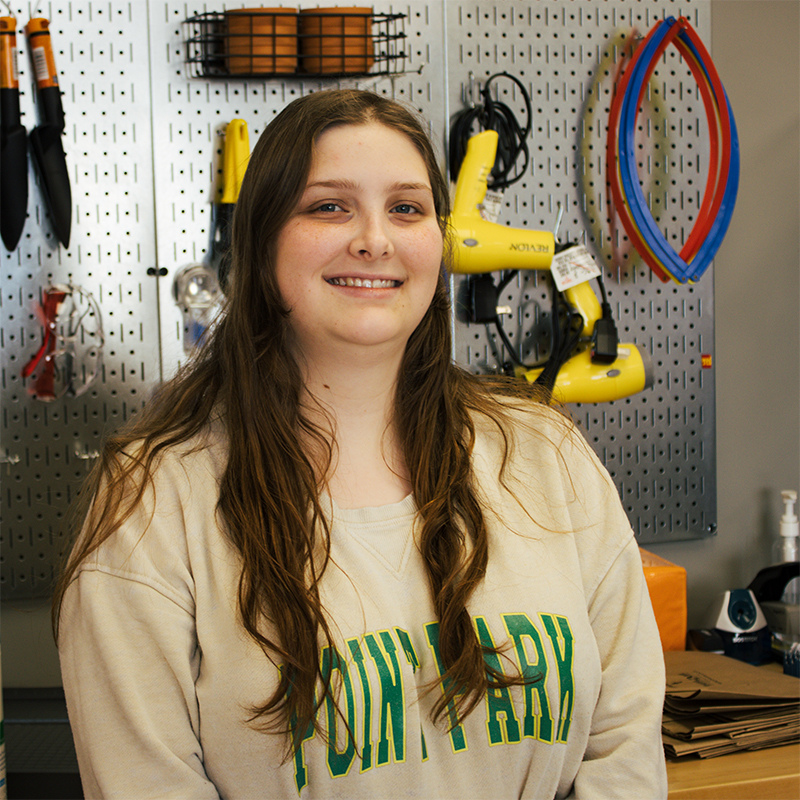Chemistry Carnival Provides Education Majors with Real-World STEM Teaching Experience
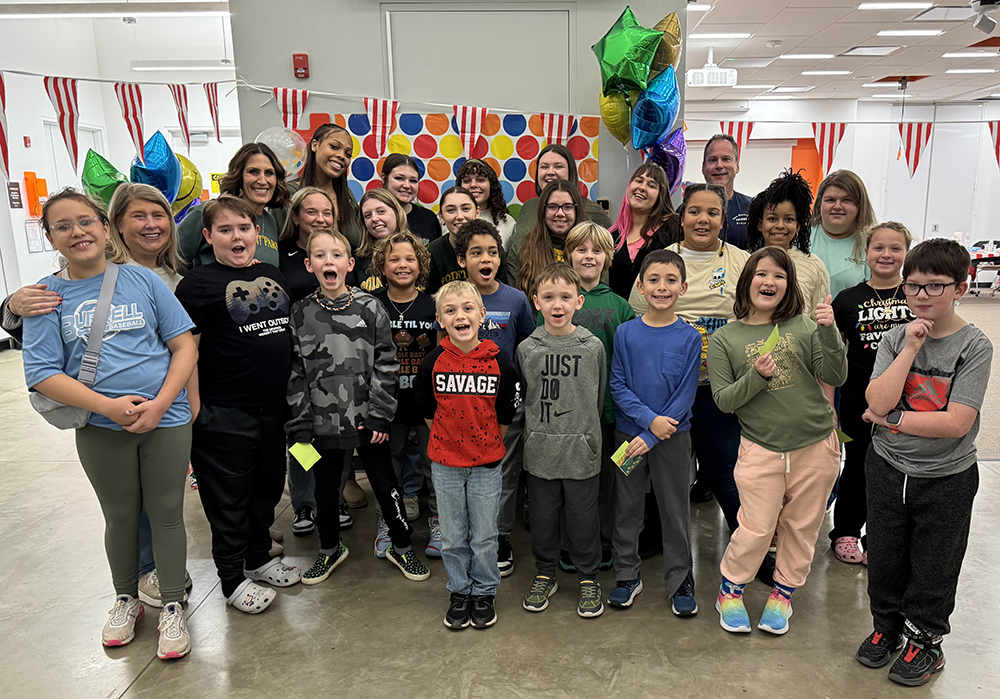
Point Park University students flexed their STEM education skillset at the Digital Foundry as they helped the R&D Impact Foundation host a Winter Chemistry Carnival for local students in grades 3-6. Submitted photo.
"Point Park’s School of Education has provided me with both the theoretical knowledge and practical skills needed to be career-ready. The courses have given me a strong foundation in pedagogy, while the field experiences and opportunities to design lesson plans and activities, like the Chemistry Carnival, have allowed me to practice teaching in real classroom settings."
Nicole Roberts '20 is a proud graduate of Point Park University's Ed.D. in Leadership and Administration program.
"My time at Point Park was truly transformative, and from the moment I stepped on campus, I knew it was a special place," she said. "The Ed.D. program showed me how much the University cares about its students’ success while maintaining high standards."
In that spirit, Roberts was thrilled to partner with Point Park's School of Education to provide undergraduate education majors a real-world opportunity to engage directly with students in the field.
As the R&D Impact Foundation's program co-director for the New Kensington STEM Program, Roberts, fellow program co-director Matthew Davis, and Kamryn York, Ed.D., assistant professor, worked with Point Park students to design and facilitate a Winter Chemistry Carnival at the Digital Foundry in New Kensington for students in grades 3-6. The foundation seeks to ignite curiosity, forge connections and create opportunities for exploration in STEM for young people in under-resourced communities.
"Partnering with the University in this way allowed me to come full circle with my connection to Point Park, helping support the next generation of educators while giving back to the community that helped shape my career," said Roberts, who was a teacher and principal in the New Kensington-Arnold School District for more than three decades.
The event included hands-on chemistry experiments, prizes and food all themed around the carnival motif. Point Park students conducted short STEM activities with multiple small groups of students, allowing them to improve and adjust their instruction each time. The event served as their final assignment for Dr. York's Teaching Science and Health course.
Activity stations included:
- Crazy Bubbles
- Paper Designs
- Fun with Red Cabbage
- Invisible Ink
- Chemical Sponges
- Floating Egg
"It was great to watch them develop and grow as they worked with the students," Roberts said. "During the first round of the carnival, they were a bit hesitant, but as they interacted more with the kids, their confidence grew, and it was wonderful to see them become more comfortable and natural in their roles."
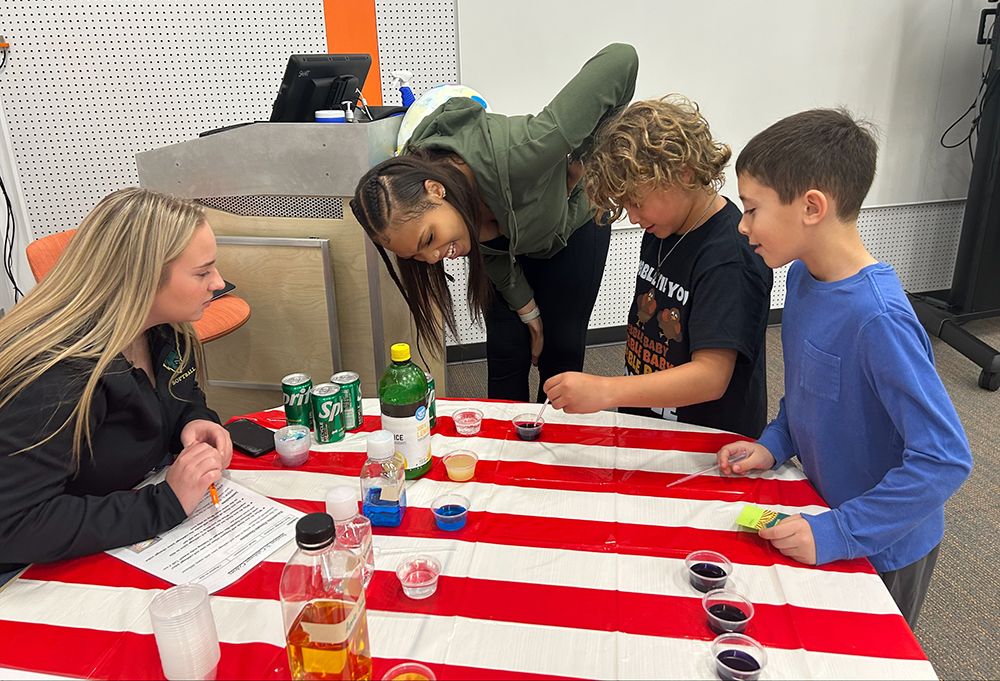
Experiences like the Chemistry Carnival are invaluable for education majors, also referred to as pre-service teachers, as they work in a real-world setting where theory meets practice.
"By leading hands-on activities, pre-service teachers can build their confidence, improve their communication and classroom management skills and learn to adapt to their students' diverse needs," Roberts said. "These experiences also help them understand the importance of making learning fun and interactive, which is essential for keeping students engaged and excited about science and education in general."
For Roberts, the event served another, perhaps unexpected purpose.
"This experience not only made me even prouder of earning my Ed.D. from Point Park, but it also helped convince my daughter to finish her education degree there," she said. "If I hadn’t been so impressed with what I saw, I don’t think I could have encouraged her to transfer."
Davis, an AP chemistry instructor in the North Allegheny School District, enjoyed mentoring Point Park's students and sharing the wisdom he has gained in his 30 years of teaching.
"Being able to provide an experience for the Point Park students to see the wonder and excitement in young students as they explore chemistry — perhaps for the first time — is a powerful reminder for them of why their potential career of STEM education is so meaningful," he said.
"By having pre-service teachers serve as mentors and role models, elementary students gain access to individuals who can guide and support their learning journey, while the pre-service teachers acquire valuable life experiences that will help in their teaching journey," he said. "These connections will help our students envision a future in STEM, while also empowering student teachers with valuable leadership opportunities."
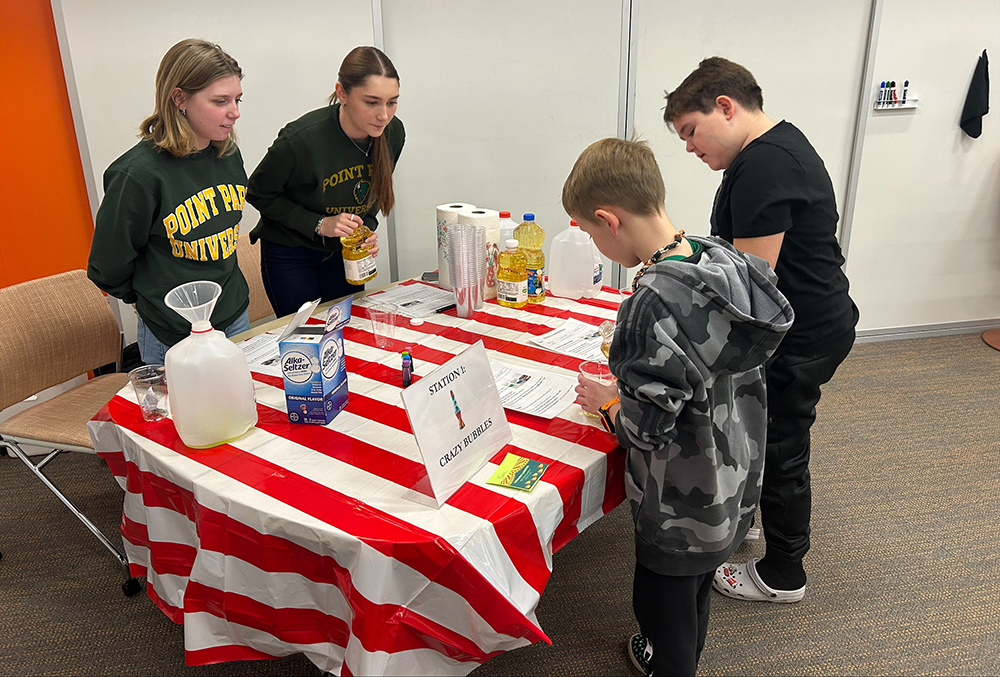
Olivia Lehman '25, a 4th-8th grade science education major, worked with Courtney Parrish '25, an elementary education major, to create a detailed lesson plan for the Crazy Bubbles activity station. Using vegetable oil, water, food coloring and an antacid tablets, they showed students how to create a lava lamp effect while teaching them about chemical reactions.
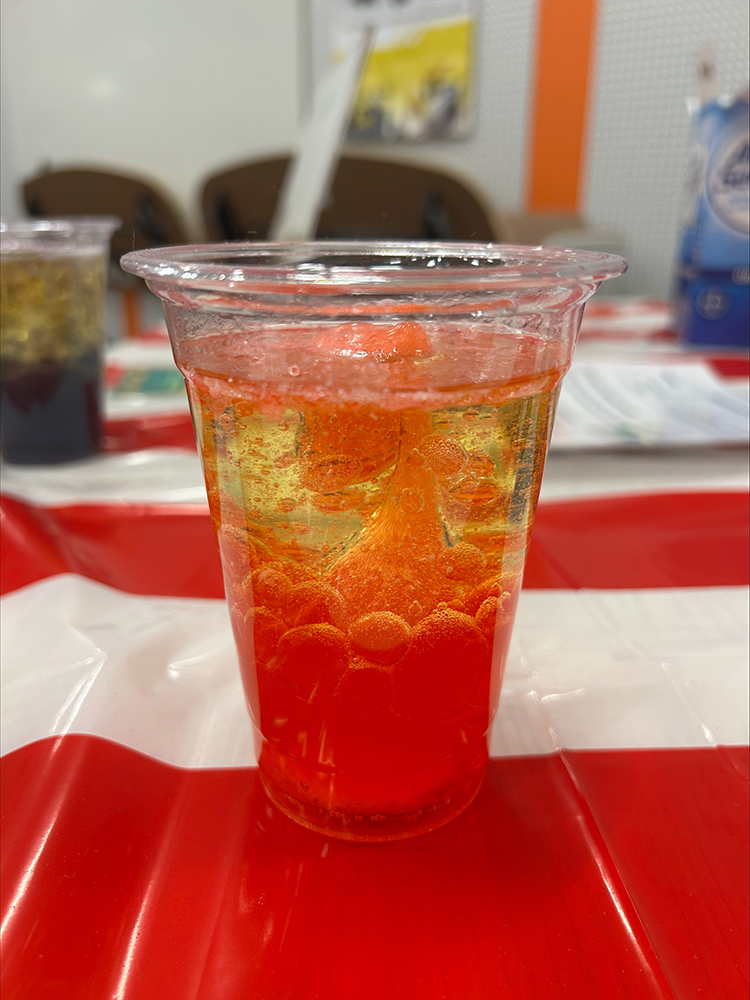
"The students asked insightful questions and were excited to observe the lava lamp in action, making it an engaging and memorable experience for them," she said.
The most fulfilling moment for Lehman was when a student excitedly pointed out how the bubbles created by the antacid tablet were rising and falling in a way similar to real lava lamps.
"It was rewarding to see them connect the science behind the experiment to a real-world phenomenon, showing that they were not only engaged but also starting to grasp the scientific concepts involved," she said.
Participating in the Chemistry Carnival taught Lehman the importance of hands-on activities in engaging students and making complex ideas more accessible, the value of testing the experiment beforehand to ensure that the activity would go smoothly and the importance of allowing time for questions and discussions, as those moments can open the door to deeper understanding and increased interest in a topic.
"Point Park’s School of Education has provided me with both the theoretical knowledge and practical skills needed to be career-ready," she said. "The courses have given me a strong foundation in pedagogy, while the field experiences and opportunities to design lesson plans and activities, like the Chemistry Carnival, have allowed me to practice teaching in real classroom settings. The School of Education also emphasizes the importance of reflective practice, which helps me to continually improve my teaching methods and grow as an educator."
Learn More About the School of Education
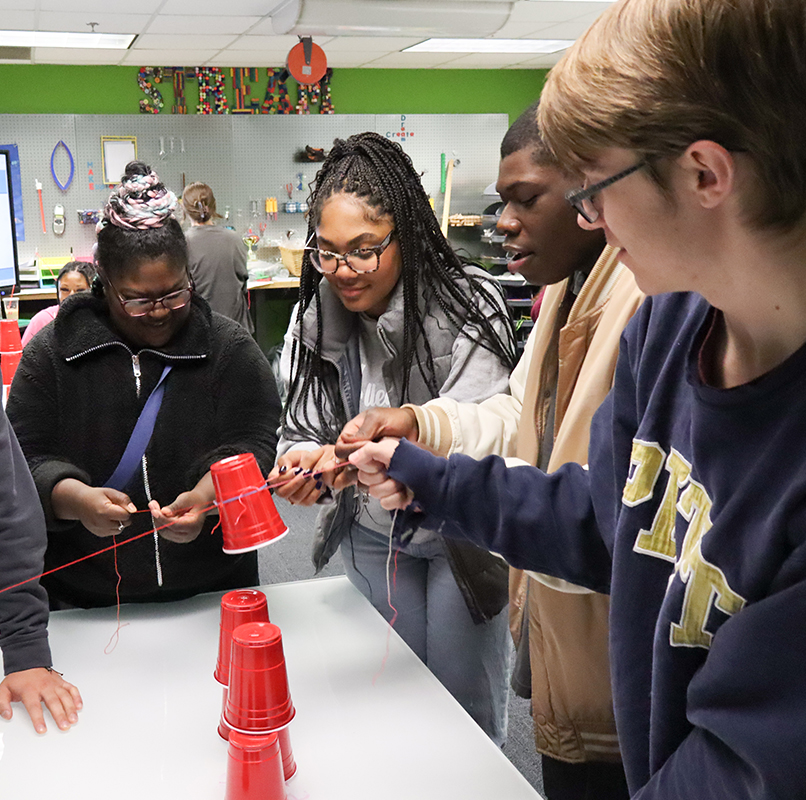
Destination Special Education Initiative Creates New Learning Opportunities
"When I am a teacher, I want to use all of this knowledge to welcome kids with special needs into my general education classroom."


